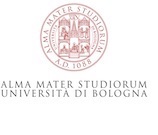THE CRITICAL TASKS OF THE UNIVERSITYInternational Consortium of Critical Theory Programs (UC Berkeley)
|
PANEL 3New Cartographies of Knowledge: Global South and Global EducationChair:DEBJANI GANGULYUniversity of Virginia)
“University, Critique and North/South Dis/articulations”
JUAN OBARRIO (Johns Hopkins University)
“Coeval Time: The Shock of the New Old”
SARAH NUTTALL (WISER, Johannesburg)
Respondent: PREMESH LALU (University of the Western Cape)
|
|
DEBJANI GANGULY is Professor of English and Director of the Institute for the Humanities and Global Cultures at the University of Virginia. She works in the fields of world literature, postcolonial studies, and South Asian Studies. Her research interests include the contemporary Anglophone novel, literary forms in the age of new media, literature and human rights, caste and dalit studies, language worlds in colonial/postcolonial South Asia, and Indian Ocean literary worlds from 1750-1950. She is the author ofThis Thing Called the World: The Contemporary Novel as Global Form (2016) and Caste, Colonialism and Countermodernity (2005), and the coeditor of Edward Said: The Legacy of a Public Intellectual (2007) and Rethinking Gandhi and Nonviolent Relationality: Global Perspectives (2007). She has contributed essays to two recent Cambridge University Press volumes, The Cambridge Companion to the Postcolonial Novel, edited by Ato Quayson (2015) and The Values of Literary Studies, edited by Ronan Macdonald (2015). She co-edits, with Ato Quayson and Neil Ten Kortenaar, the Cambridge Journal of Postcolonial Literary Inquiry, and is the General Editor of the newly commissioned The Cambridge History of World Literature. She is a Life Fellow of Clare Hall, Cambridge, Fellow of the Royal Asiatic Society of Great Britain and Ireland, and Member on the International Advisory Boards of the Harvard Institute for World Literature, the Consortium of Humanities Centers and Institutes (CHCI), Duke University, and the Academy of Global Humanities and Critical Theory.
|
PREMESH LALU is Director of the Centre for Humanities Research (CHR) and Deputy Dean for Research and Post-Graduate Studies in the Faculty of Arts at the University of the Western Cape (UWC). Prior to assuming the directorship of the CHR in 2008, he served since 1995 as lecturer, senior lecturer and associate professor in the Department of History at UWC. He has lectured internationally and locally in South Africa on a broad range of themes, including histories of colonialism and apartheid, art and history, the digitization of archives, and the humanities after apartheid. Following his doctoral studies as a MacArthur Fellow in African History at the University of Minnesota, Lalu developed a substantial engagement with the scholarship of the Subaltern Studies Collective in South Asia. He is the author of The Deaths of Hintsa: Post-Apartheid South Africa and the Shape of Recurring Pasts (HSRC Press, 2009). Lalu has also published a co-edited volume titled Becoming UWC: Reflections, Pathways and Unmaking Apartheid’s Legacy (2011) and contributed to a volume called Uncontained: Opening the Community Arts Project Archive (2012), which accompanied a CHR exhibition by the same name.
|
SARAH NUTTALL is Professor of Literature and Cultural Studies and Director of WISER (Wits Institute for Social and Economic Research) in Johannesburg, South Africa. She is the author of Entanglement: Literary and Cultural Reflections on Postapartheid, editor of Beautiful/Ugly: African and Diaspora Aesthetics, and co-editor of many books including Johannesburg: The Elusive Metropolis and Load Shedding: Writing On and Over the Edge of South Africa. For a period of seven years Sarah taught the Fall semester at Yale and then Duke Universities, in English and African and African American Studies. For four years she has directed WiSER, the largest and most established interdisciplinary Humanities Institute across the Global South. In 2016 she was an Oppenheimer Fellow at the DuBois Institute at Harvard University.
|
JUAN OBARRIO is Associate Professor of Anthropology at Johns Hopkins University. He is the Founding Director of the Program on the Global South at the University of San Martin, in Buenos Aires. He serves on the Advisory Board of the Consortium of Humanities Centers and Institutes. His areas of expertise are critical theory and political anthropology, with a special focus on postcolonial studies and Southern Theory. In addition to his research in South America and Southern Africa, he has worked on program building fostering South-South academic collaborations across regions and languages. He has received fellowships from the Institute of Advanced Study, Princeton; MacArthur Foundation, Ford Foundation, Social Science Research Council and American Council of Learned Societies. His essays have been published in English, Spanish, Portuguese, French, and Italian. He is the author of The Spirit of the Laws in Mozambique (University of Chicago Press, 2014); Corps Etranger (Belin Editions, Paris, 2014); A Matter of Time: A Secret State of Things in Northern Mozambique (forthcoming). He is the co-editor of Legados, genealogias y memorias postcoloniales (Ediciones Godot, 2015) and African Futures: Essays in Crisis, Emergence, Possibility (University of Chicago Press, 2016). He is the editor of the journal Critical Times: Interventions in Global Critical Theory, published by the International Consortium of Critical Theory Programs.
|



